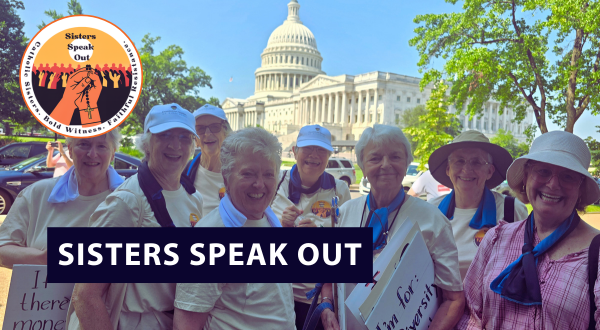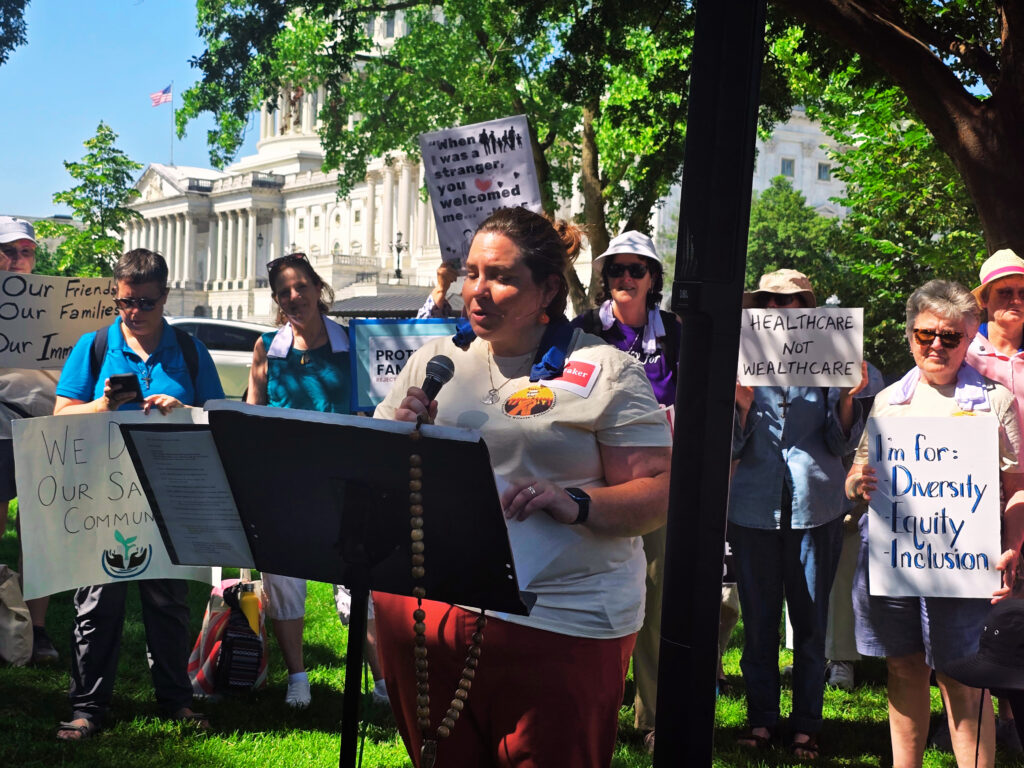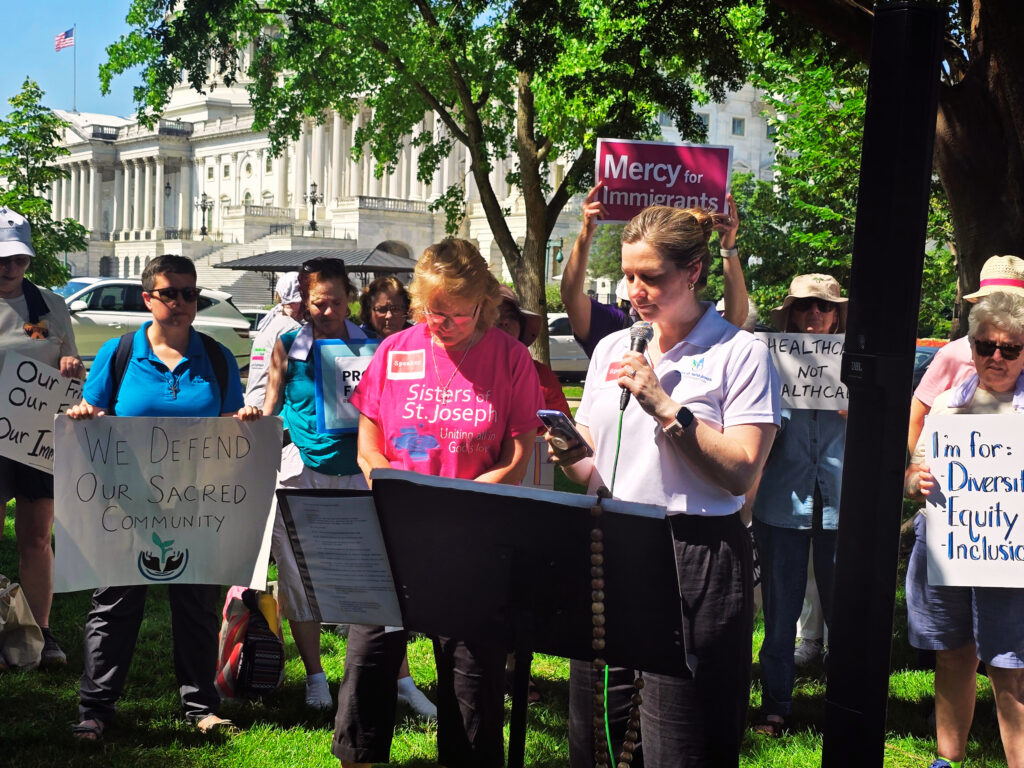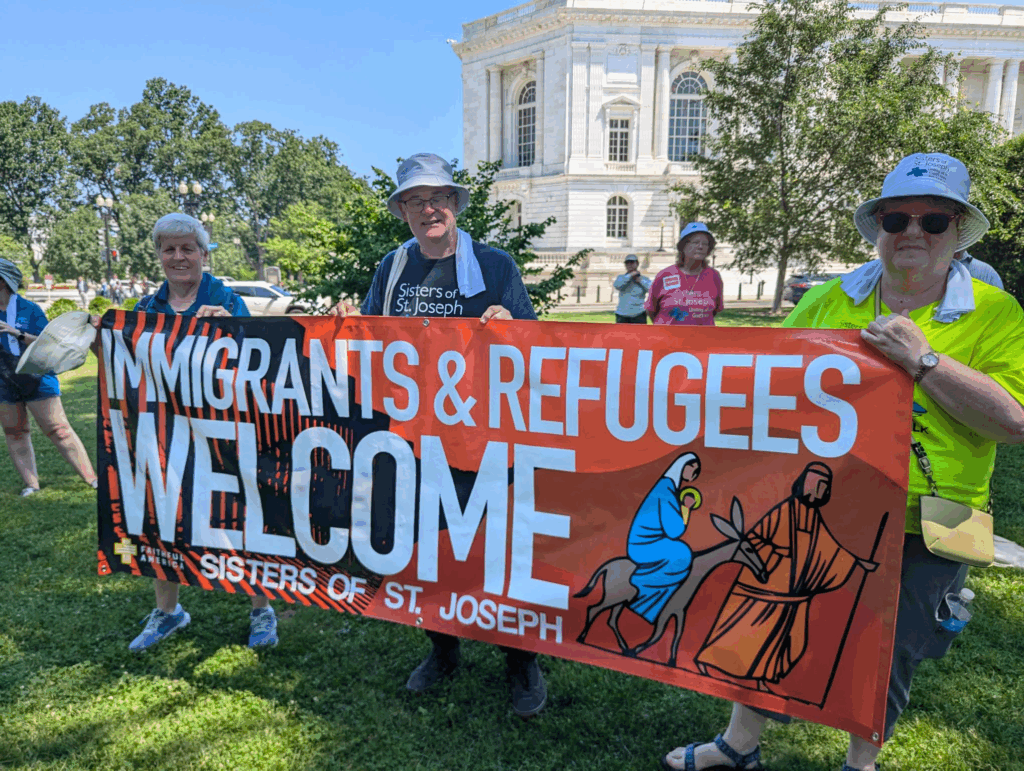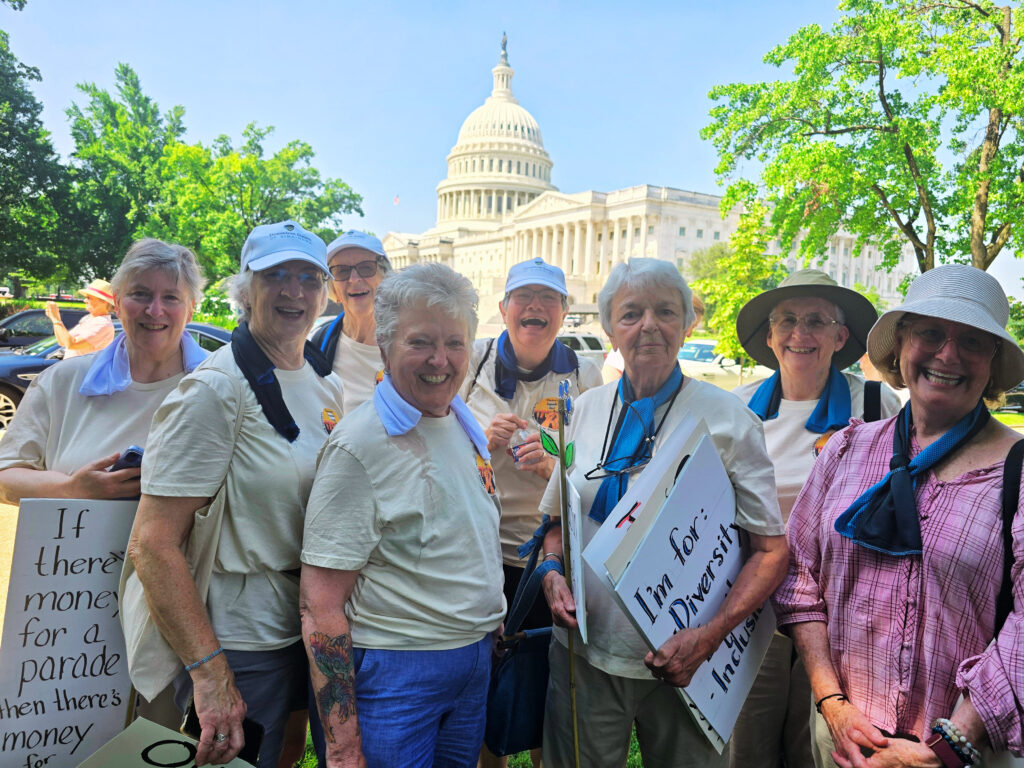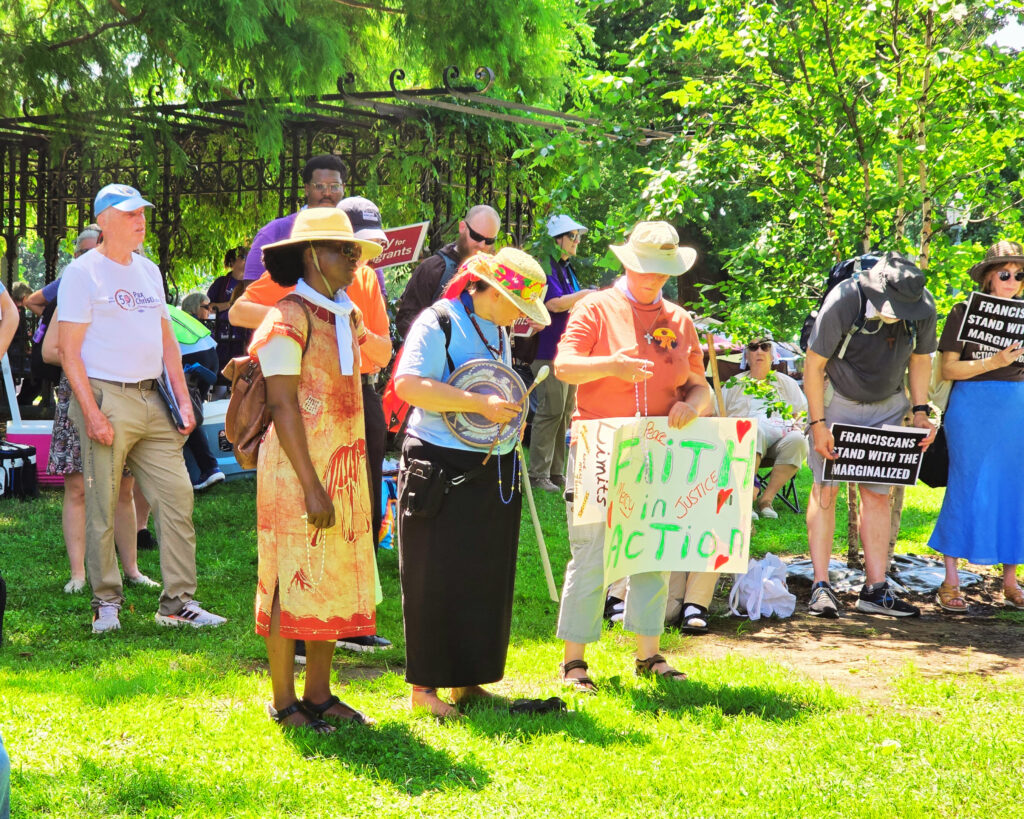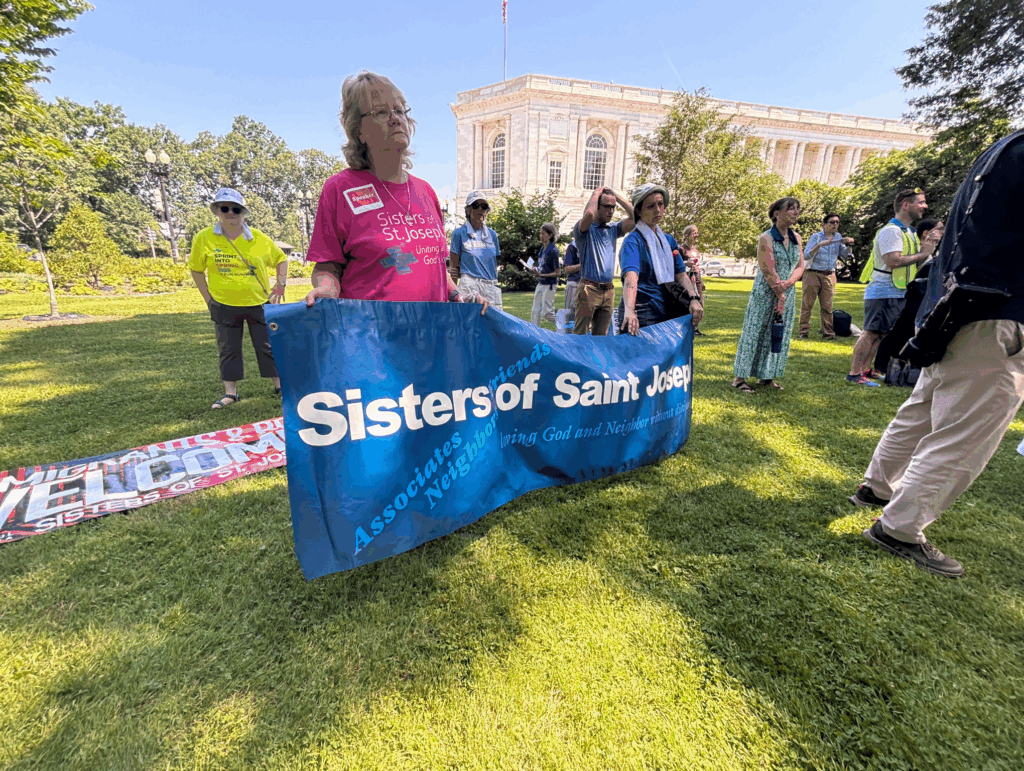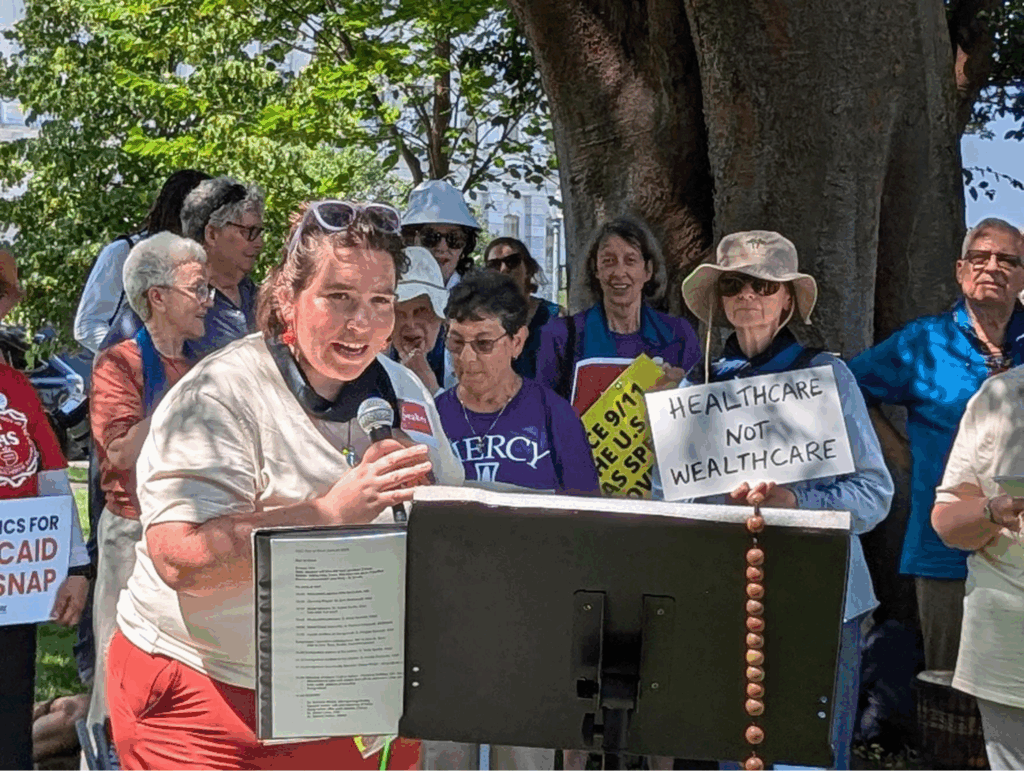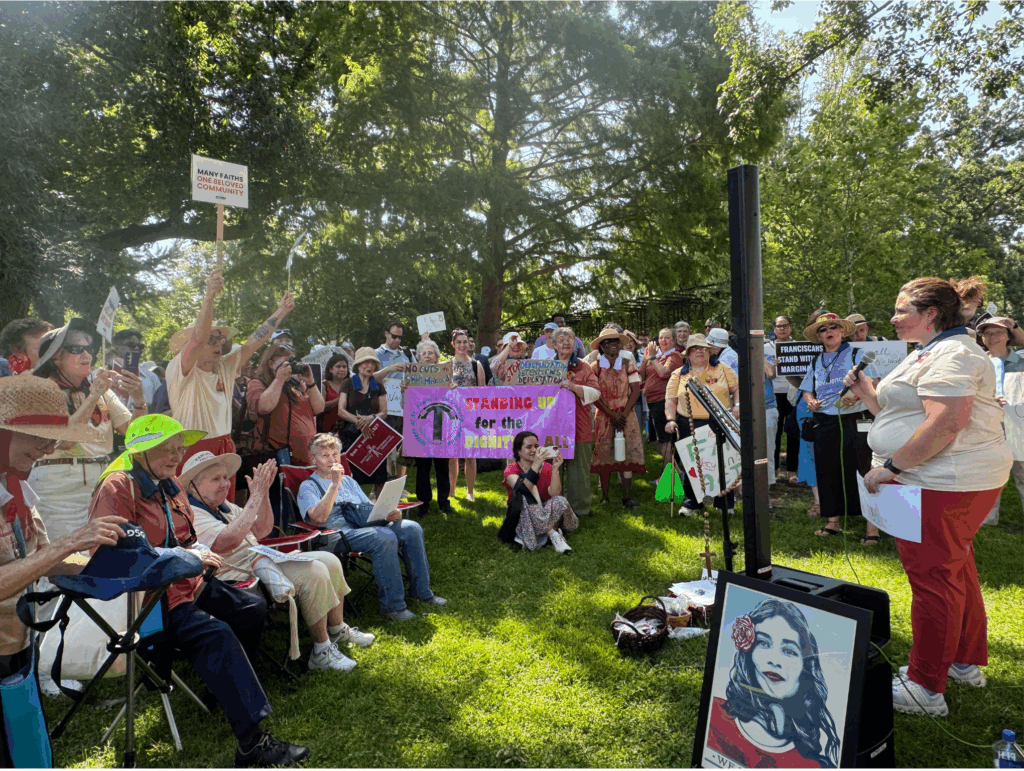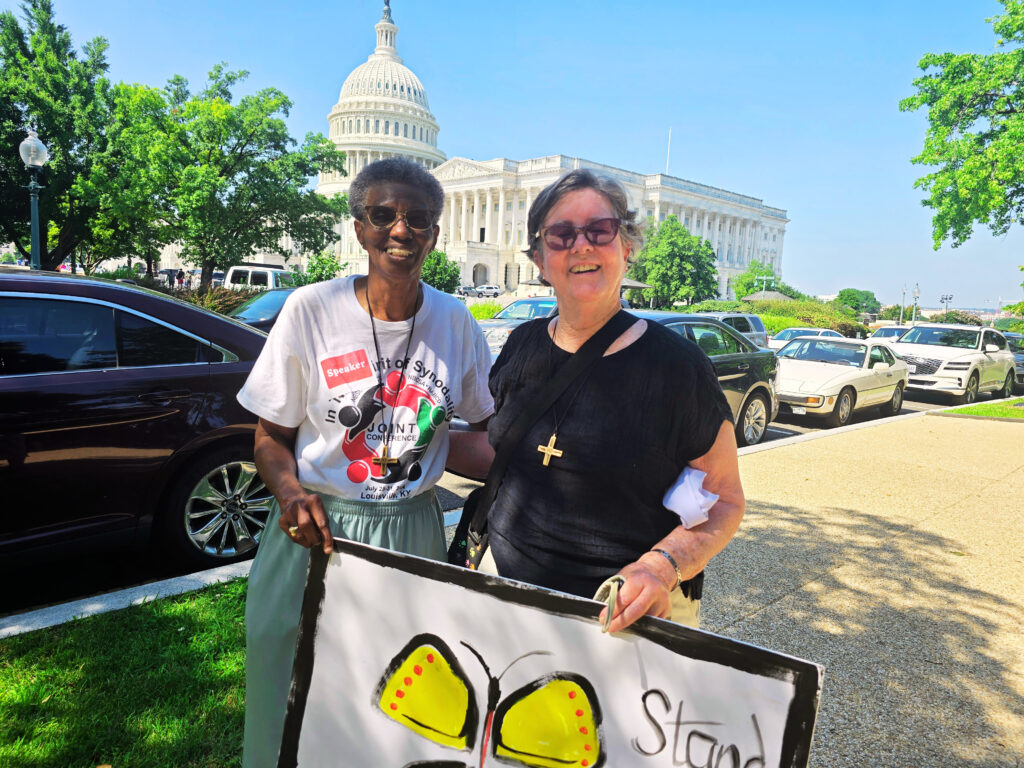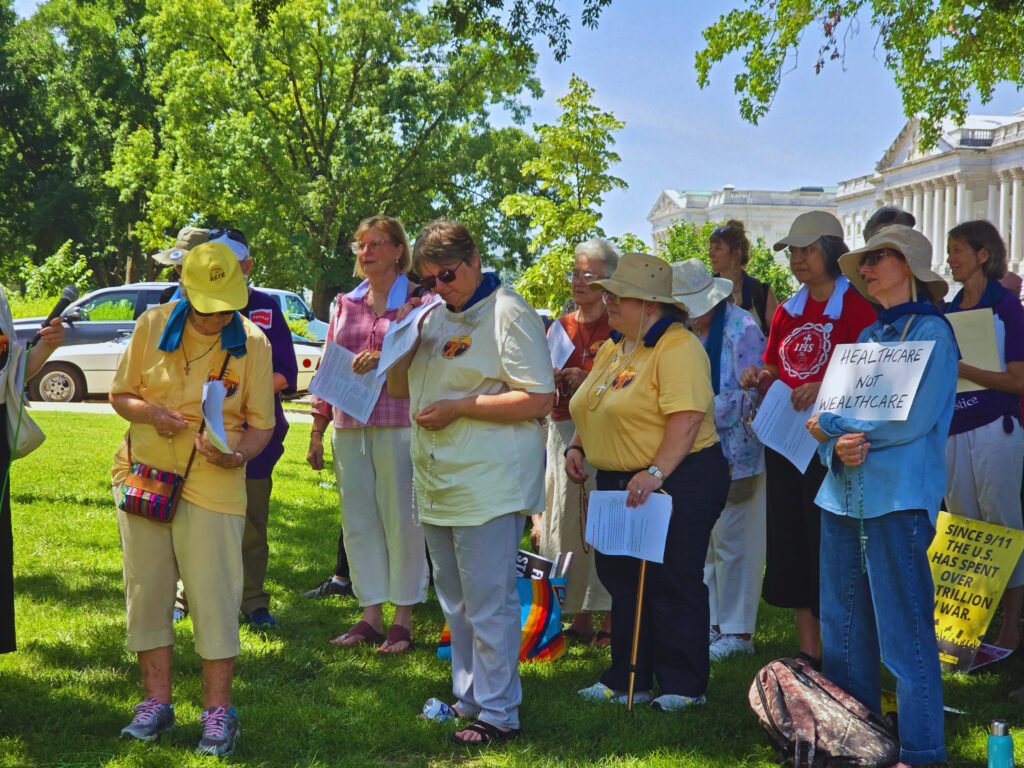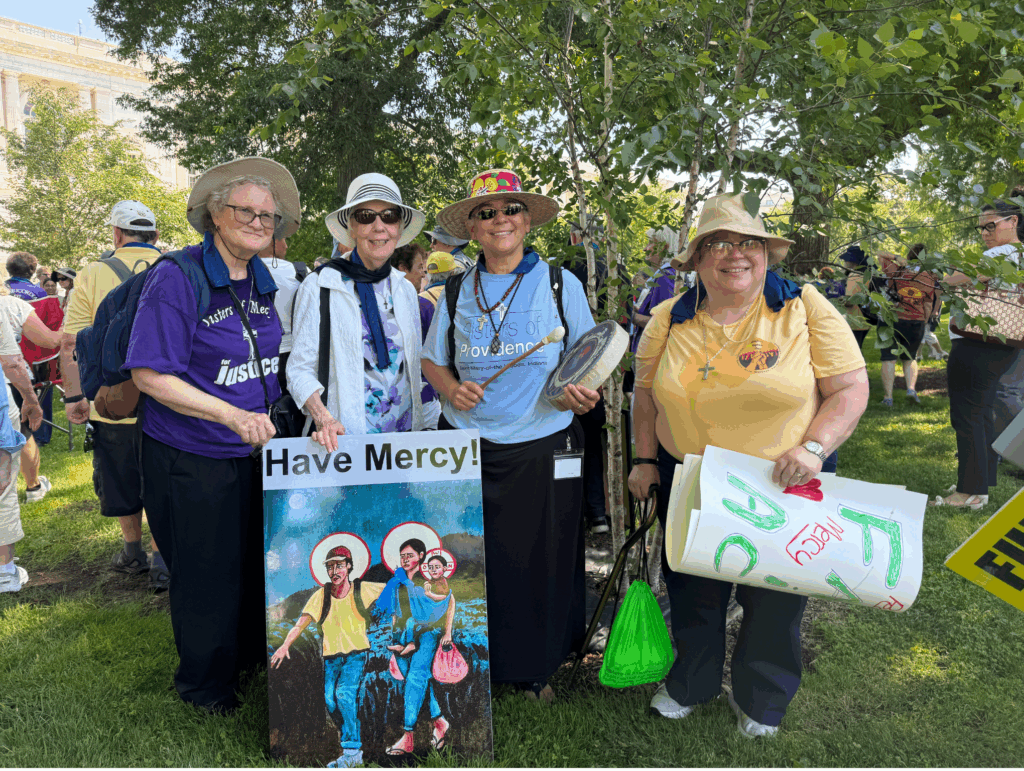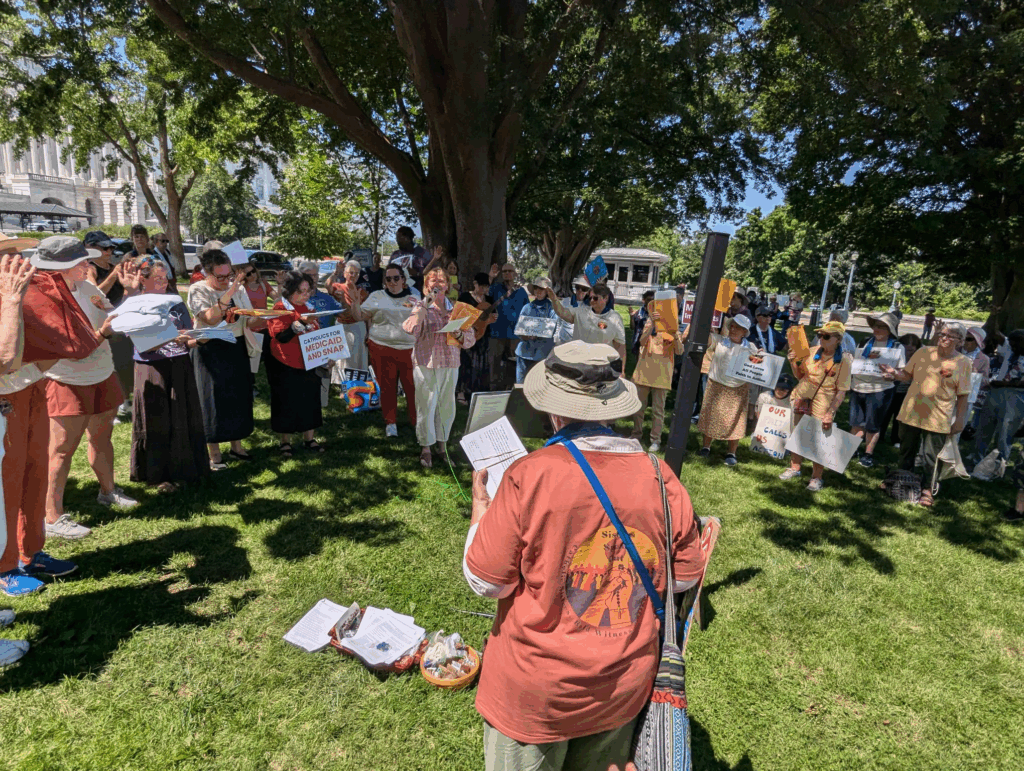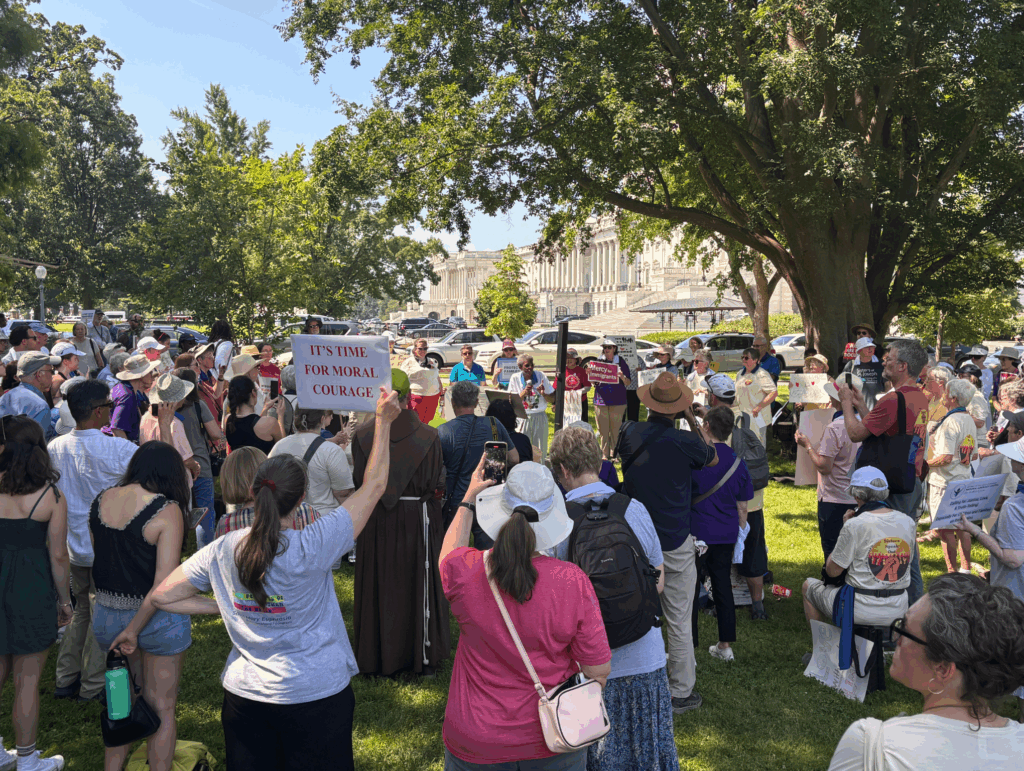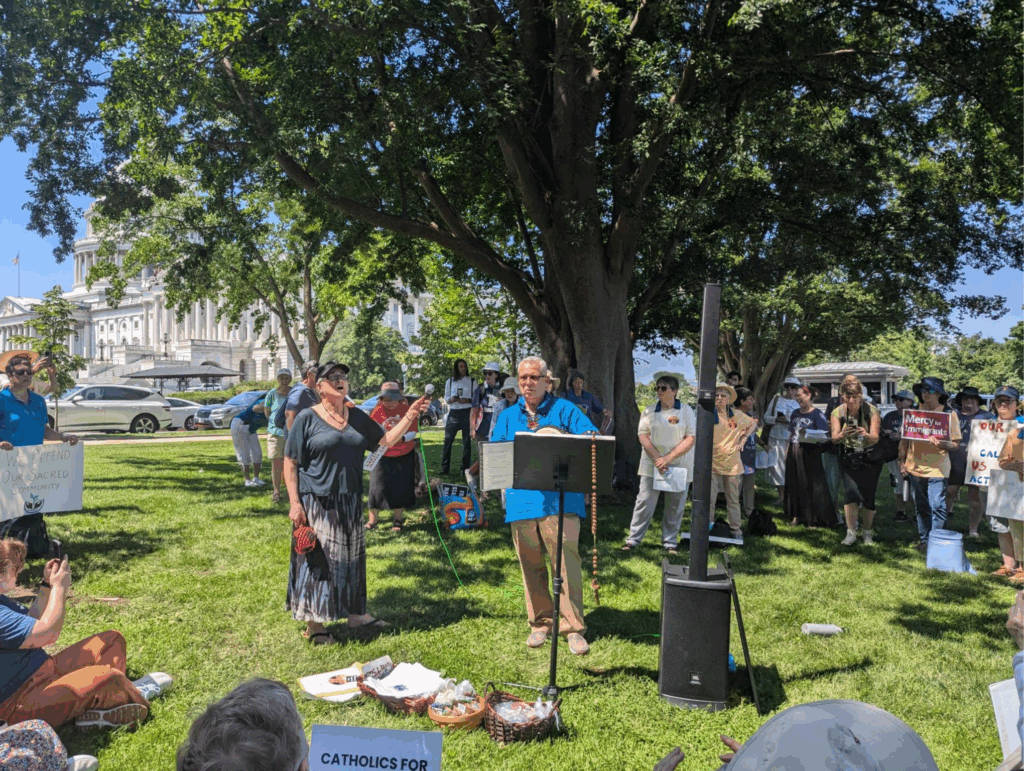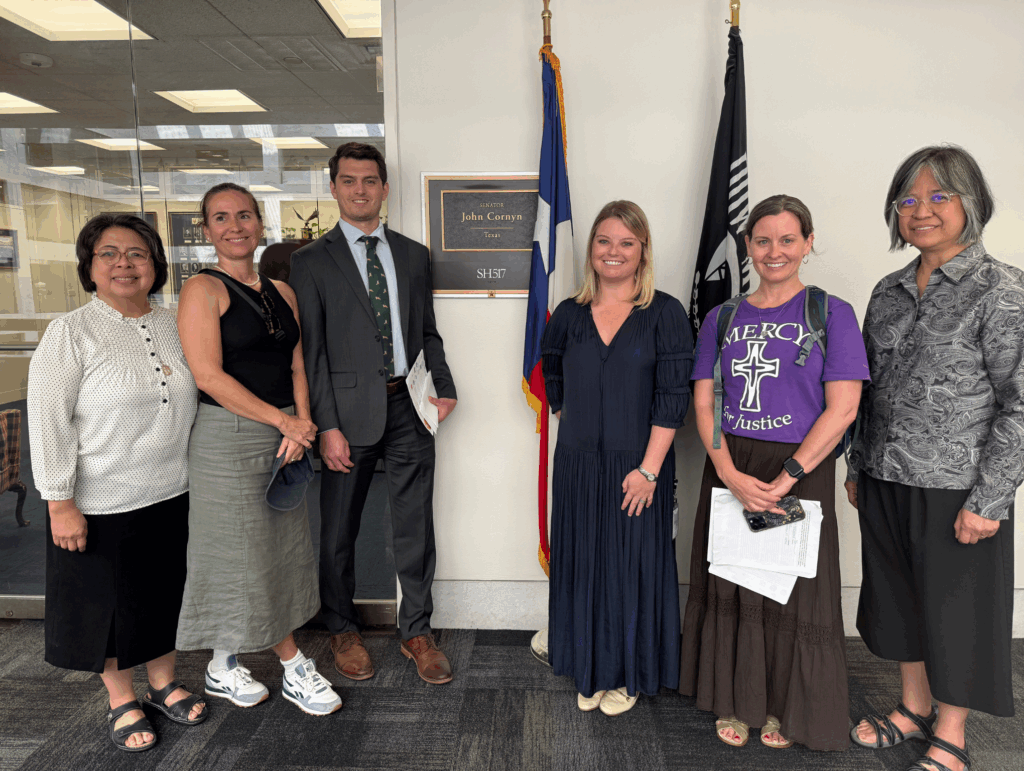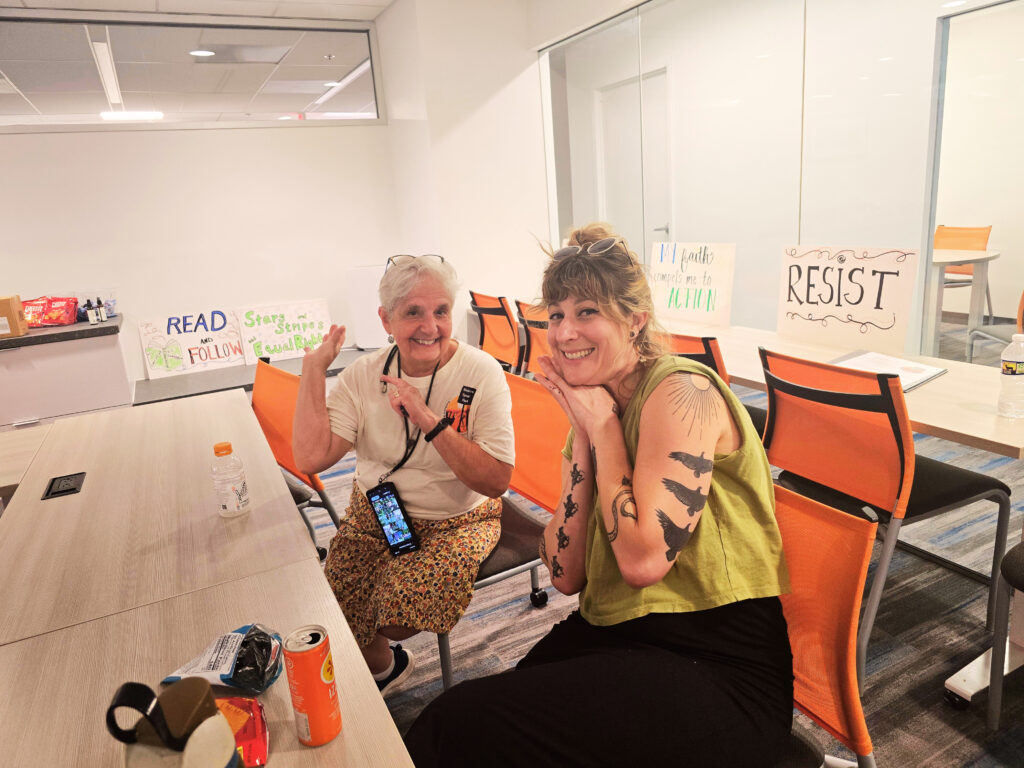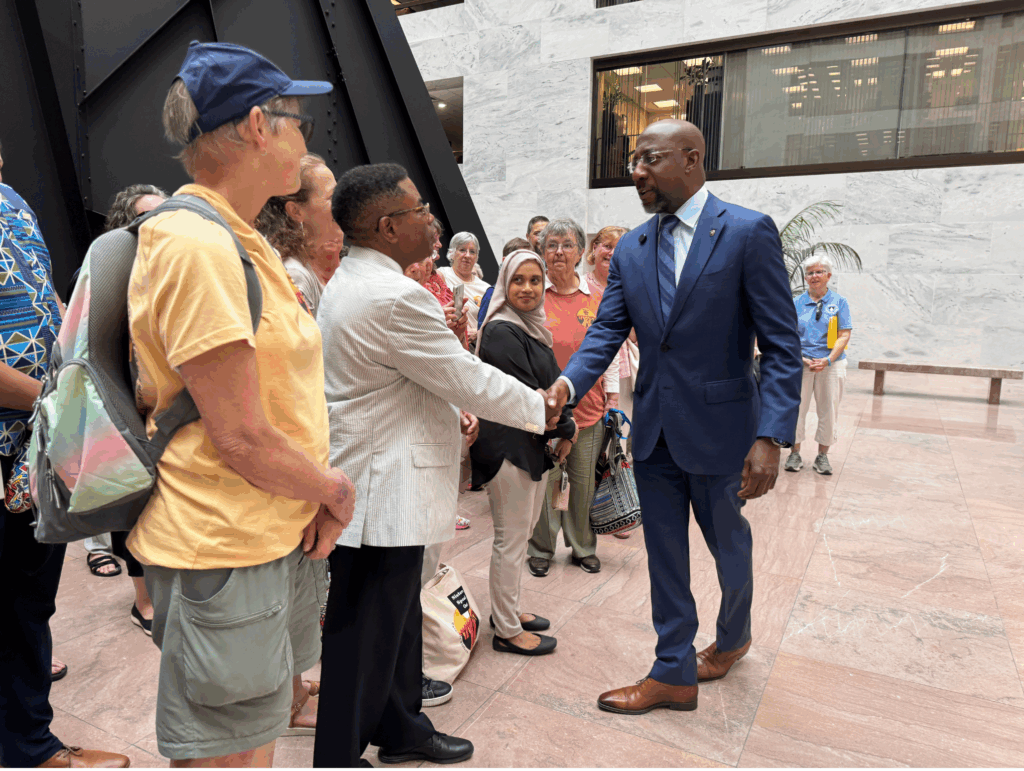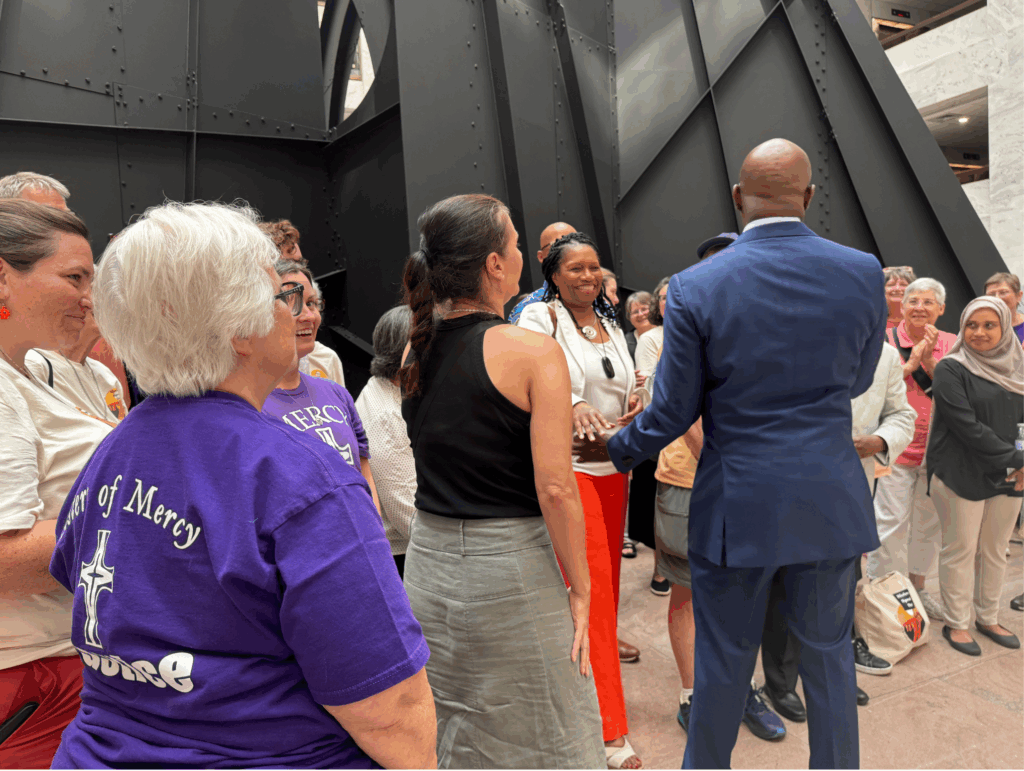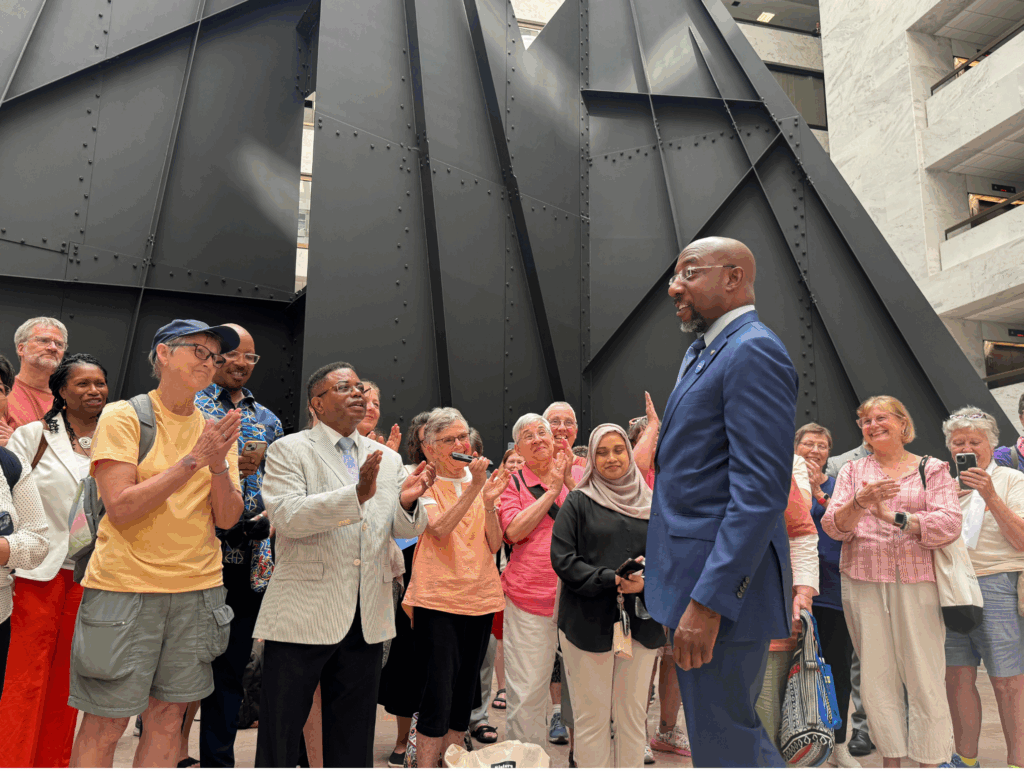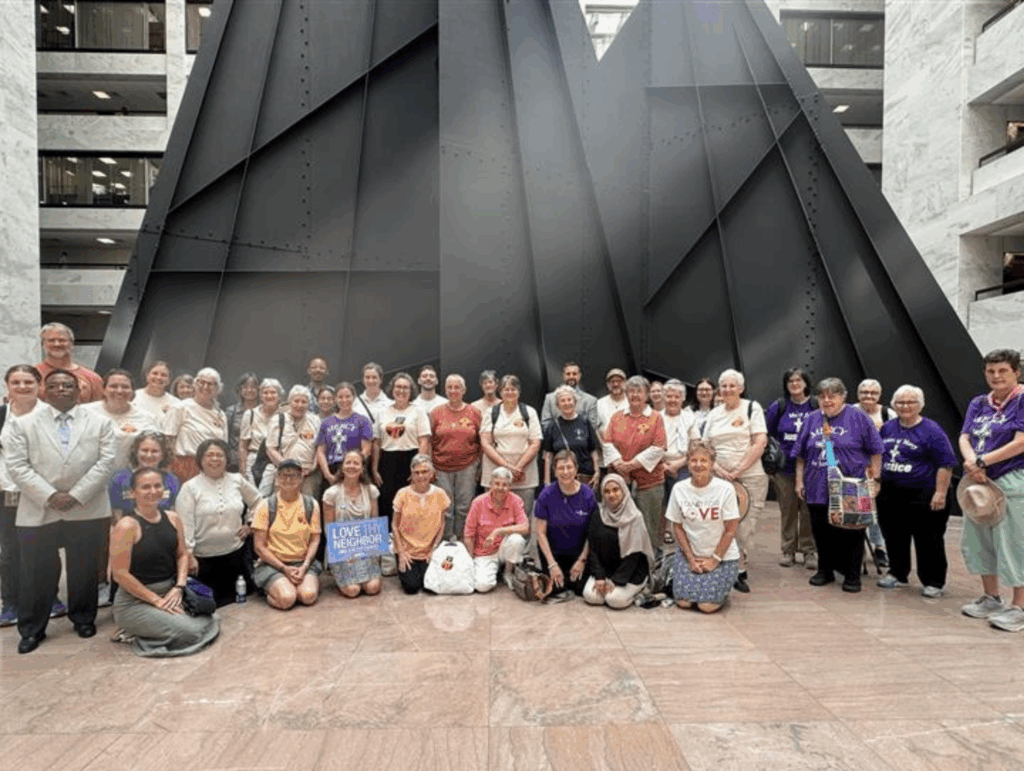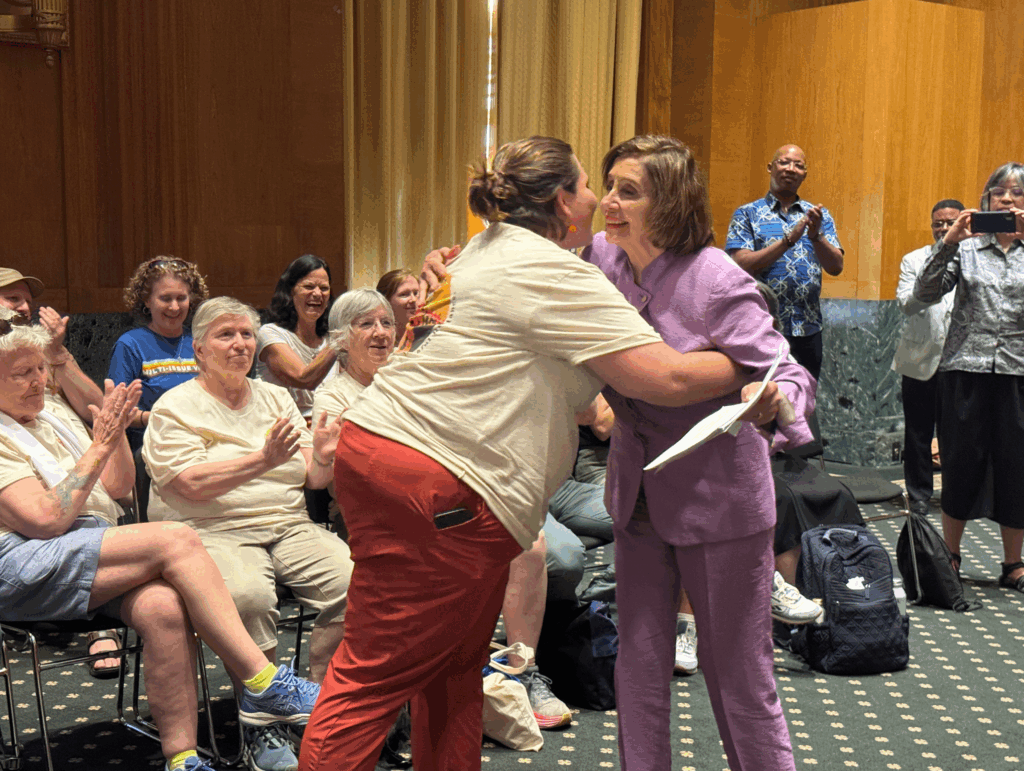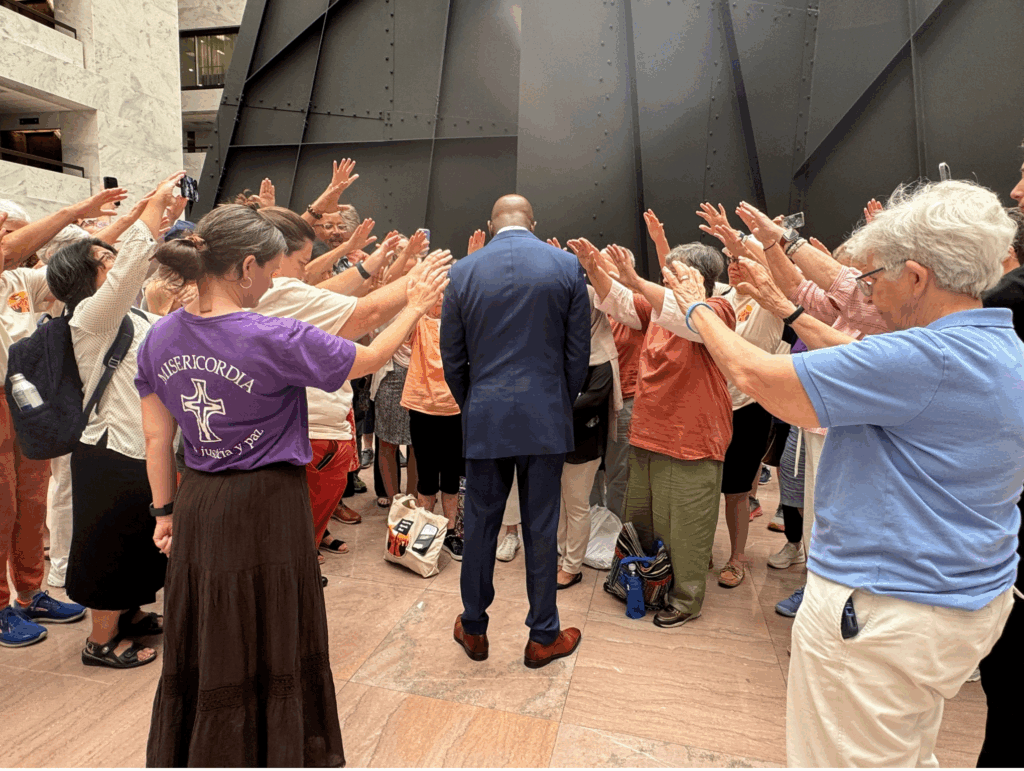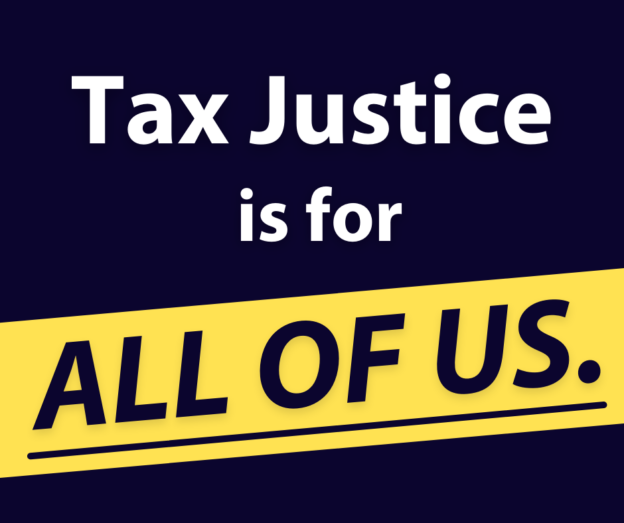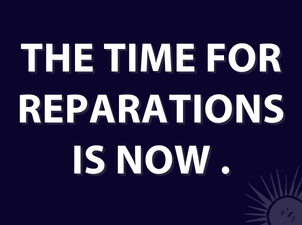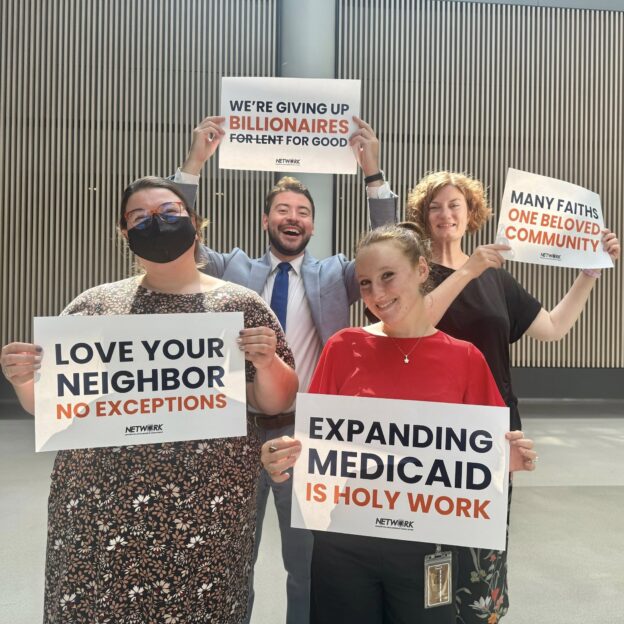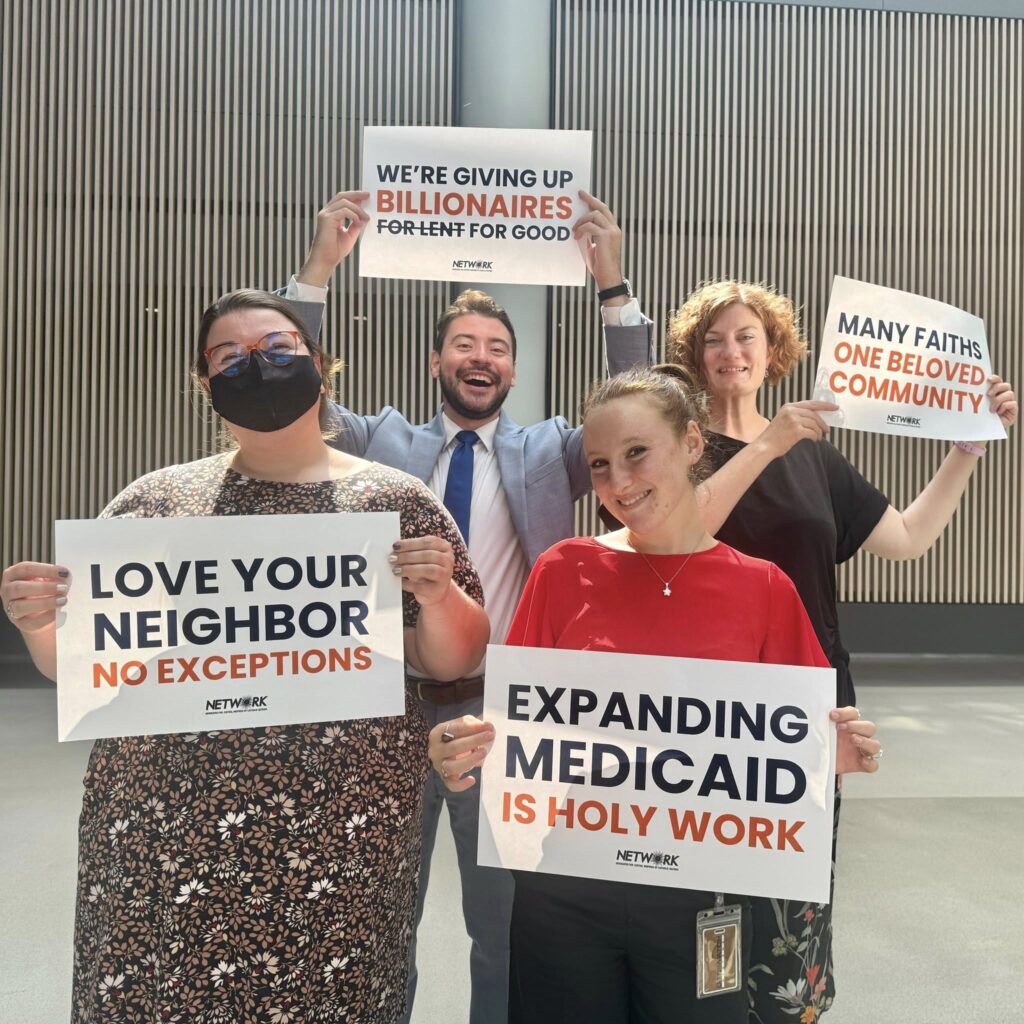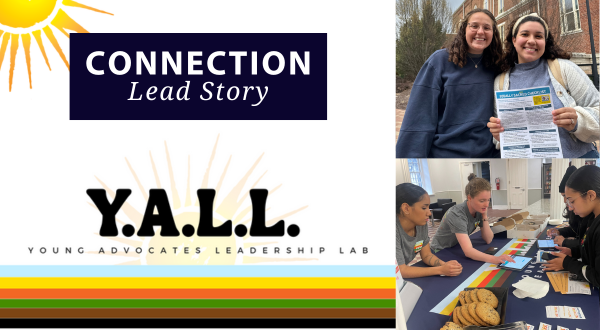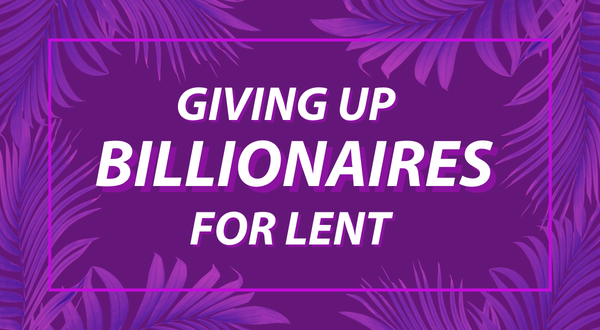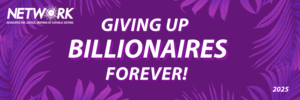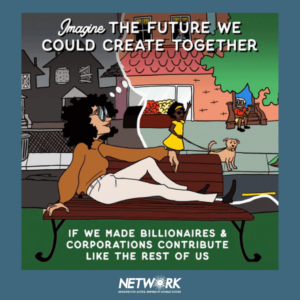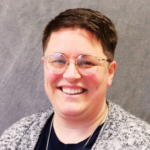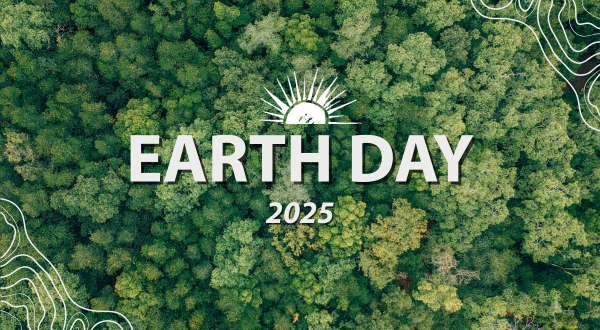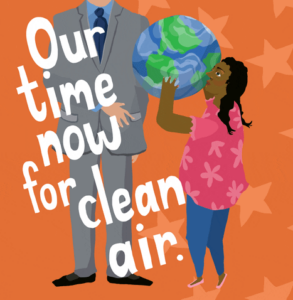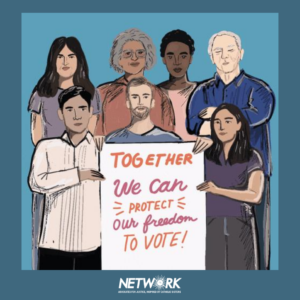Stay Rooted for Action
In Community With One Another, We Can Endure These Scary Times
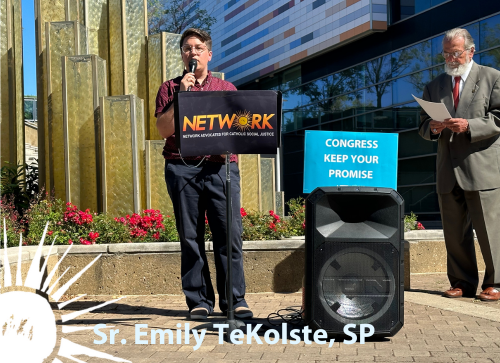
Sr. Emily TeKolste, SP
Over the past few months, I’ve spent some time with people across the country who really care. They are outraged and frustrated by the things they see every day from the Trump administration as they attack the funding our communities rely on, send ICE to raid our towns, give our data to private interests, and more.
NETWORK Advocates and others across the country want to make a difference. Many also express feeling overwhelmed and struggling to find hope. Many of us want to call for more from those who are supposed to represent us — from our elected officials to leaders in the church. Amidst what feels like a daily onslaught of bad news, what is ours to do? Here are some practices and reminders for staying rooted and active:
Ground yourself
This Administration wants us to feel overwhelmed and discouraged so that we won’t be motivated to push back against their power-grabs. That’s precisely why they are pushing their agenda forward with such speed.
Take a moment each day to ground yourself. Take a deep breath. Remind yourself that in this moment you are safe. Staying grounded and in a parasympathetic emotional state will enable you to be more effective in the work you are doing. Recognize that you are part of a bigger whole. At the same time, you are one person. One person doesn’t change the world alone. By trying to do it all, you will burn yourself out, and we can’t afford that!
Act from where you are
Maybe you’re surrounded by people who feel very differently than you. Perhaps your job is to build authentic connections with them, learn from them, and sow small seeds of relationship that might open up something new. Or maybe you’re mostly in relationship with people who share your perspective. Invite them to join you in taking action. Thinking together doesn’t change things; acting together does.
Set realistic expectations
We don’t have to look for big actions that will have big results. Focus on small actions that will have small results – and then do them regularly. As Rep. Alexandria Ocasio-Cortez (NY-14) said, “There is no action too small because when we all act together, even in small ways, it adds up to something huge.”
Do your part and nobody else’s
You are not alone. You are part of a wide community of people working to make this country a place where everyone can thrive. Our faith assures us that our work today is part of a bigger picture of God’s justice.
We have to share the workload. Each person doing their own part well allows us together to do great things well. It could be going to a lobby visit, writing a letter to the editor, donating your time or money, or distributing Know Your Rights pamphlets at your parish. Start by looking for one concrete thing you feel called to do and focus on that. Trust that other people also really care and are doing their parts as best they can.
Focus on action, not fear
What is happening in our country is scary. But autocrats rely on fear. Their power is built on illusion and intimidation. They have no power if we refuse to be intimidated. At the end of the day, we have to choose compassion and solidarity over fear. As the first letter of John says, “Perfect love casts out fear!”
Find joy, celebrate successes
Though there will be setbacks along the way, there will also be successes. For example, our collective pressure recently forced the Trump administration to roll back their devastating federal funding freeze. Even if temporary, these wins matter! No matter how small, celebrate those successes. Find joy in the community you’re building. These are the things that will sustain us.
Find compassion
The Administration’s actions are hateful, and we must answer with compassion. Find compassion, including for yourself and those around you. Reach out and check in on neighbors. We don’t need people showing up perfectly. We just need to show up.
Collaborate
Connect with other groups in your local area. Attend their events and build relationships there. And then invite folks you meet there (and folks you already know) to join you for NETWORK events. That’s how we keep growing and stay connected and effective! Friends, when we act together, we have enormous power. Our pressure is working, so we must keep it up. Together.







